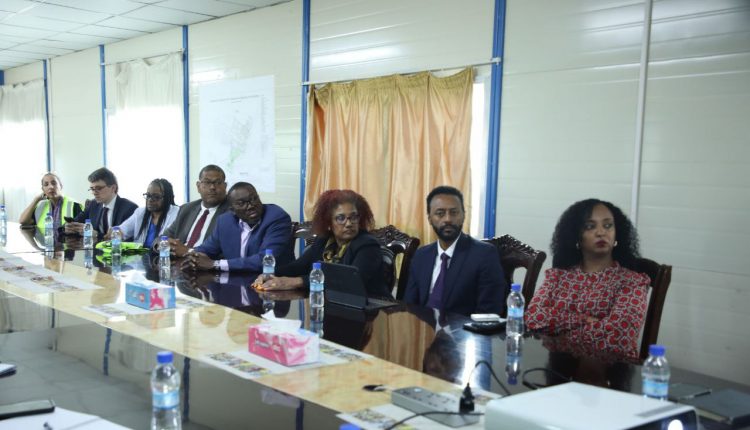Modjo Logistics Hub Pivotal for Ethiopia’s Trade, Jobs, and Regional Integration: World Bank Country Director
Addis Ababa, October 2, 2025 (FMC) — The World Bank has highlighted the strategic importance of Ethiopia’s Modjo Green Logistics Centre expansion, underlining its role in boosting regional trade, domestic economic growth, and job creation.
Mariam Salim, World Bank Country Director for Ethiopia, Eritrea, South Sudan, and Sudan, told FMC that the project is critical for regional integration and trade.
“This corridor from Modjo to Djibouti, including rail, road, and supporting infrastructure, forms a central backbone of Ethiopia’s logistics system. The expansion allows more exports to flow out and imports to flow in efficiently,” she said.
Salim emphasized Ethiopia’s large domestic market and the facility’s potential to serve both national and regional economies.
“Infrastructure like the Modjo Dry Port enables Ethiopia not only to support its own economy but also the wider regional market,” she said.
The project has already created employment during construction, including work on tracks, warehouses, and terminals, and is expected to generate additional jobs as export and import capacity grows. Salim added that private operators utilizing the facility will also create further employment opportunities.
“We look forward to the official launch and to seeing the hub fully operational,” she said.
Beyond logistics, the World Bank is engaged in multiple initiatives in Ethiopia. A recently approved project on energy access, part of the Bank’s Mission 300 to increase energy access for 300 million people across Africa, highlights Ethiopia’s central role in achieving regional targets.
“Ethiopia is critical not only for access but also for infrastructure improvement,” Ms. Salim said.
Agriculture remains another priority. The Bank is working with the Ministry of Agriculture and the private sector to enhance value chains and unlock export potential.
Salim cited Namibia’s success in exporting meat to Europe as an example of what Ethiopia could achieve. “Logistics hubs like Modjo are essential for enabling agricultural exports. Access to credit and financing for farmers is also a priority,” she said.
She also highlighted Ethiopia’s recent WTO certification for pharmaceutical production, making it one of only four African countries to meet such standards. “This opens potential for exports while ensuring local demand is met,” she added.
Job creation, particularly for youth, is central to both the Ethiopian government and the World Bank. Salim emphasized the importance of private sector engagement. “Ethiopia’s future depends on strong government–private sector collaboration. Unlocking opportunities for private enterprise is essential for growth and employment,” she said.
Reflecting on Ethiopia’s broader potential, she said, “Ethiopia has proven its capacity with major projects like the GERD. Similar determination in logistics and job creation could unlock limitless potential. The sky is the limit if Ethiopia continues along this path.”
By Mesafint Brlie

